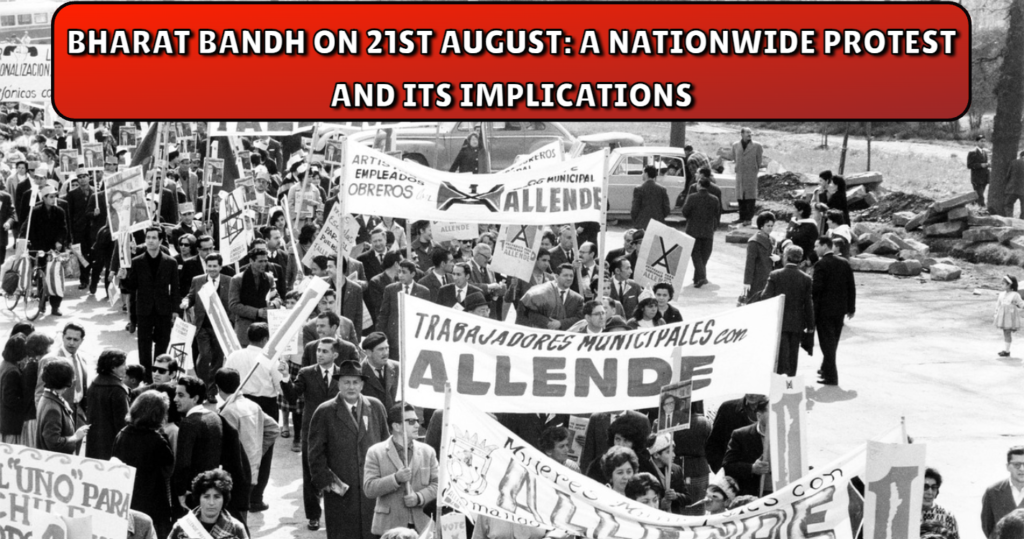On 21st August, India witnessed a significant nationwide protest, known as Bharat Bandh, impacting various parts of the country. This large-scale protest was called by the Samyukt Kisan Morcha (SKM), a coalition of farmer organizations, and was supported by multiple trade unions and civil society groups. The protest primarily targeted the government’s policies that, according to the protestors, are adversely affecting the agrarian community and the working class.

Why Was the Bharat Bandh Called?
The Bharat Bandh on 21st August was organized as a response to several pressing issues faced by farmers and workers across the country. One of the primary reasons for the protest was the demand for the rollback of the three controversial farm laws passed by the Indian government in 2020. These laws, according to the protesting farmers, threaten their livelihoods by promoting the interests of large corporations at the expense of small and marginal farmers.
In addition to the farm laws, the protestors raised concerns about labor codes that they believe are detrimental to workers’ rights. The government’s privatization policies, rising unemployment, and inflation were also key issues that fueled the protest.
Who Supported the Bharat Bandh?
The Bharat Bandh received widespread support from various quarters, making it a significant event. The Samyukt Kisan Morcha, which spearheaded the protest, was joined by multiple trade unions representing different sectors. These include the All India Trade Union Congress (AITUC), the Centre of Indian Trade Unions (CITU), and other labor organizations that have been vocal against the government’s economic policies.
Several political parties also extended their support to the Bharat Bandh, expressing solidarity with the farmers and workers. Among these were the Indian National Congress, the Communist Party of India (Marxist), and other regional parties. The involvement of these political entities added a significant weight to the protest, increasing its impact nationwide.
The Impact of the Bharat Bandh
The Bharat Bandh on 21st August led to disruptions across various states, affecting transport, businesses, and daily activities. In some regions, public transportation services were halted, while shops and markets remained closed in support of the protest. The participation of various trade unions also meant that certain industries, including banking and manufacturing, saw reduced activity.
The protest garnered widespread media attention and was seen as a significant expression of dissent against the government’s policies. While the government maintained that the farm laws and labor codes are necessary for economic reforms, the protestors argued that these policies are being implemented at the cost of the common people.
Conclusion
The Bharat Bandh on 21st August was a clear indication of the growing discontent among farmers, workers, and other sections of society with the current government’s policies. The nationwide protest highlighted the deepening divide between the government and various social groups, raising questions about the future of these policies. As the situation continues to evolve, it remains to be seen how the government will respond to these demands and whether any concessions will be made to address the concerns of the protestors.